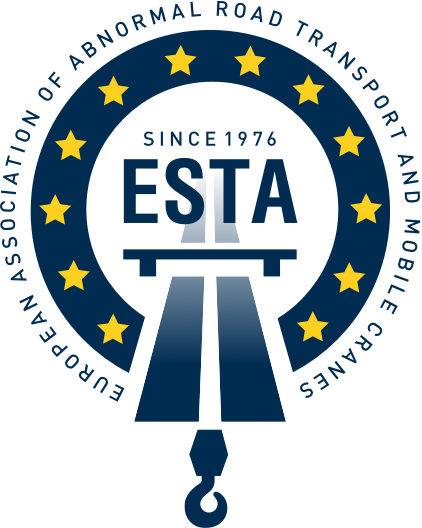ESTA is “extremely concerned” at the impact on the heavy and abnormal transport sector of the new sanctions register for transport violations which will come into effect on April 1.
The ERRU register – the European Register of Road Transport Undertakings – contains Europe-wide records of violations of transport legislation and includes a penalty points system. If a transport operator collects too many penalty points, they risk losing their licence to operate.
Under the new system, every violation of road transport law will attract a number of penalty points. If a company’s points exceeds its limit – set according to the size of the company – it risks having its licence suspended or revoked. In addition, the legislation also applies to individual transport managers.
The long list of potential offences includes violations of the rules on driving and rest times, tachographs, working times, weight and dimensions, the technical condition of the vehicle, speed limits, driver competence and the transport of dangerous goods by road.
ESTA Director Ton Klijn said: “Within the ERRU there are three categories of violations, namely minor, medium and serious. The problem for abnormal transport is that for relatively minor offences the transport permit often becomes void and therefore offences can quickly fall into the highest category.
“For example, a small exceedance of the driving times in the permit already results in 12 penalty points. But for companies with 2 to 10 vehicles, the maximum number of penalty points in two years is 26. With a few fines you can quickly get over that limit and you are in the danger zone.”
Klijn said that ESTA strongly backs all measures to improve safety but added that as a result of the register, the abnormal transport sector risks being disproportionately and severely punished and companies will face a much higher risk of losing their permit than other operators.
The ERRU register was created by the European Commission to allow a better exchange of information between member states, so that the authorities can monitor whether road transport companies are complying with the rules. It was officially adopted in 2013, but its launch was delayed until this year at the request of several countries who argued that they were unprepared for its introduction.
In a statement, the European Commission said: “Undertakings that do not respect the rules when operating abroad will face the consequences in the member state where they are based. This creates fairer competition conditions in the road transport market.
“The set-up of the national registers and their interconnection are required under the legislation on the access to the profession of road transport undertakings (Regulation (EC) No 1071/2009).”
Ton Klijn continued: “The problem has already been discussed with IRU and the European Commission, but this has not yet led to a solution.
“ESTA will soon participate in further talks with the parties involved and the European Commission. Our aim is simply to try and achieve a more realistic approach to fines for breaches in regulations by abnormal transport operators in the set-up of the ERRU register.”
